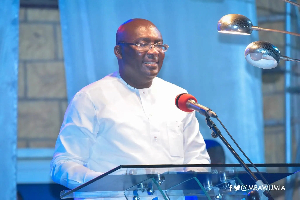Behind those two propositions lies an ugly reality. Western leaders like to preach that if poor countries move decisively to competitive markets, they can lift their citizens out of poverty. Not so.
Countries in sub-Saharan Africa that make every smart economic move will almost certainly remain crushingly poor unless there is much more help from the rest of the world.
Start with proposition one. Ghana is largely free of the civil strife that plagues many of its neighbours. It is also a fully fledged, multi-party democracy, where power peacefully shifted a couple of years ago by secret ballot from an autocrat to the opposition party. President John Agyekum Kufor oversees a relatively corruption-free, hard-working administration.
On a recent visit, I sat with the president's chief ministers as they worked co-operatively with parliamentary leaders of the main opposition party and US consultants. The president has instructed top ministers to work with outside experts, like Jeffrey Sachs of Columbia University's Earth Institute, to secure policy on economic growth in every sector. Also, Ghana enjoys the benefits of a relatively good education system, sources of foreign exchange earnings - primarily from gold and cocoa - and a majestic beachfront that cries out for tourist development.
Civil peace, democracy, waterfront, exports: these are tickets for economic success. But in Ghana, these tickets go unpunched. Living standards are only marginally higher than they were decades ago. So what's the problem? Prof Sachs provides a compelling explanation: in sub-Saharan Africa, poverty breeds poverty. That may sound obvious, even circular. In fact, it's nearly profound.
To see why this basic idea is often ignored, take out your old economics textbook. You will find that it assumes that investments in poor countries produce more profit per dollar invested than do investments in rich countries. Why so? The standard theories assume that investors can find very productive uses for new equipment in countries with very little existing equipment. Poor countries, then, have the potential to attract foreign investors.
Textbook models also often assume that people living in poor countries save more of every dollar they earn than do people living in rich countrie s. The combination of high savings rates, high rates of return on investment and large potential inflows of foreign capital can ignite a self-reinforcing cycle of investment, growth, more investment and more growth. Of course, many poor countries squander the opportunity, imposing lame and corrupt policies that drive domestic and foreign investors away. But countries that give market forces a shot grow fast.
But, Prof Sachs points out, countries can be too poor and too disadvantaged to grow, no matter how enlightened their policies. Without a healthy population, developed harbours, roads and other infrastructure, foreign investors will stay away. And the poor people themselves can be too poor to save a dime, if all income gets spent on life's necessities. In sub-Saharan Africa, the cycle of disease, low domestic savings, poor infrastructure and no foreign investment produces self-reinforcing poverty, not growth.
Forty years ago, South Korea and Ghana had the same income per capita. But Ghana suffered from extreme malaria and other ill health. Korea did not. In 1960, Ghana's life expectancy was 45 years, while Korea's was already 54 years. Ghana's infant mortality rate was 131 per 1,000 births, while Korea's was 82 per 1,000 births. Ghana suffered other disadvantages as well. Less than half its population lived within 60 miles of its coast and therefore lacked easy access to international trade. By contrast, almost all Korea's population lived close to its coast. These disadvantages could be overcome with large investments in public health and roads, but Ghana lacks the resources to do so.
The World Health Organisation's Commission on Macroeconomics and Health recently estimated that Ghana and other countries in the malarial zone needed to spend about $35 or $40 per person per year just to meet the essential health need of their population - keeping workers healthy enough to work. Yet Ghana can afford only about $10. So it takes an extra $30 per person for 20m people, just to keep Ghanaians fit to work. But that's a half-billion dollars that Ghana does not have to spend on health care or other basic needs. Its people are living on less than a dollar a day. They cannot, willy-nilly, hand over about a month's earnings for health or anything else.
The consequence is simple. Ghana and other poor sub-Saharan countries do not, and cannot, make it on their own. They need financial infusions from the west for health care and other basic investments that would set the stage for growth. Given an initial boost, Ghana's pro-growth attributes could take over. But Ghana needs that boost. If the west, smugly clinging to nostrums of boot-strap capitalism, sits back and watches Ghana fail, its neighbours will fail as well. Ghana is one of sub-Saharan Africa's best shots at success. Ghana's shot at success will remain remote until rich countries come to its rescue.
The writer (Michael Weinstein) is director of programs at The Robin Hood Foundation and senior fellow at the Council on Foreign Relations


















